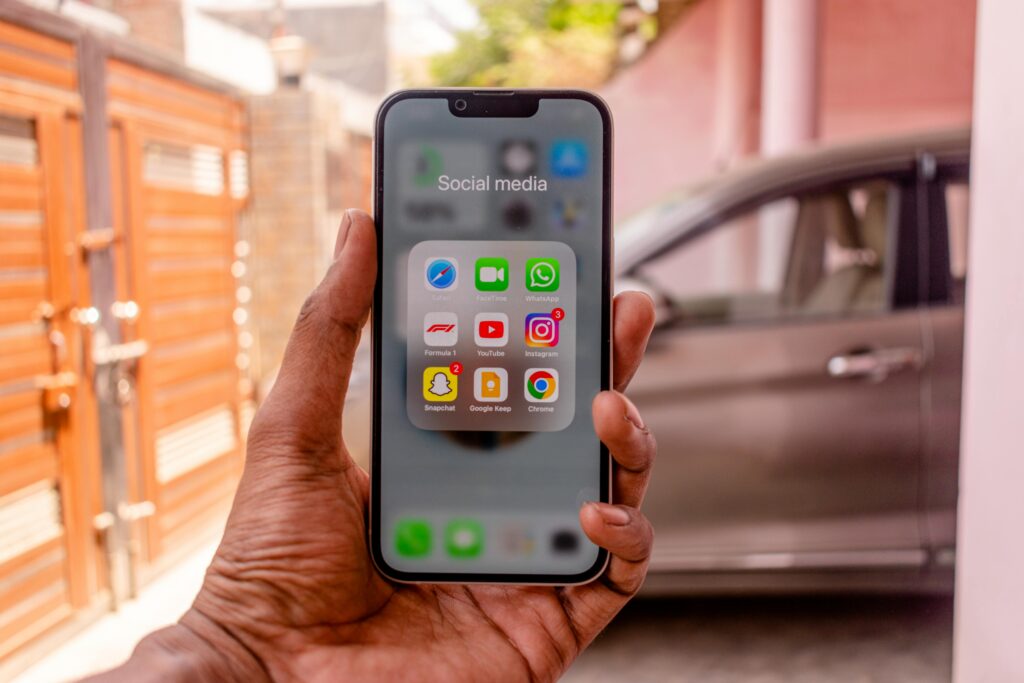
Social media platforms like Facebook, Instagram, Twitter, and TikTok are now a major part of daily life. Within the year 2024, 5.07 billion people (nearly half of the world) had become active users, spending an average of two hours per day online.
While social media makes communication easier, have you ever considered its impact on our minds? It can lead to FOMO, loneliness, anxiety, and depression, especially among teens and young adults.
If social media leaves you feeling sad, frustrated, or disconnected, it might be time to rethink your online habits. We constantly absorb content—some true, some false—shaping how we think and feel. But is social media showing us reality or distorting it
The Big Lies About Social Media

Social media claims to connect us, keep us informed, and offer endless entertainment, but is it offering its claims?
The reality is far less glamorous.
Instead of strengthening relationships, it fosters superficial connections that leave us feeling lonelier than ever. Likes and comments give us a dopamine rush, tricking our brains into addiction, while endless scrolling shrinks our attention spans and fuels anxiety.
We’re told it’s “just entertainment,” yet it’s designed to manipulate emotions, steal our time, and sell our data.
You don’t have to take our word. In the Yale news, Paul Hoffman, director of Yale Mental Health and Counseling, said himself:
“People can often feel compelled or engaged with content that can be detrimental to their mental health, especially if they are going through a period of increased anxiety or depression.
It can be very important that people be mindful about the content they are consuming because often the very goal of the algorithms is to keep you mindlessly engaged.”
Even the promise of free speech is misleading. When your search is inclined towards one thing, algorithms move in the same way in the name of hyper-personalization.
By continuously showing similar content, they create echo chambers that limit diverse perspectives and severely hinder critical thinking. But here’s the good news: We can fight back.
How?
Start with being more mindful about the scrolling.
Practicing Digital detoxing and prioritizing real-life connections. All of these practices can help us reclaim our focus and mental well-being.
But the question is, how can one platform be this powerful?
How Social Media is Changing Our Brains?

Social media is reshaping how we think.
How?
Quick-scroll feeds and constant notifications shorten attention spans, making it harder to focus. Algorithms trigger emotions like fear and excitement, shaping our views and reinforcing extreme opinions, especially in teens.
Research shows that likes and comments trigger dopamine release, reinforcing a habit of seeking validation.
Experts suggest that constant engagement with social media can create dependency, while excessive reliance on online searches may reduce memory retention by discouraging deep thinking and recall.
Designed to hold attention and manipulate emotions, social media encourages impulsive behavior and poor decision-making.
As we scroll endlessly, our ability to think critically and focus deeply fades. Recognizing these effects is key to a healthy digital balance.
- The Dopamine Effect & Addiction
Social media’s addictive nature activates the brain’s reward center by releasing dopamine, reinforcing engagement. Receiving “likes” boosts dopamine levels, encouraging repeated use.
Over time, neuroplasticity reshapes brain pathways, affecting information processing, interactions, and emotions.
Teenagers are particularly vulnerable, as their developing brains are more prone to addiction. The constant pursuit of validation strengthens these neural changes, potentially diminishing real-life happiness and increasing the risks of anxiety and depression.
- Attention Span & Cognitive Overload
Social media’s rapid, bite-sized content conditions our brains for quick rewards, making it harder to focus on complex tasks.
Endless scrolling leads to cognitive overload, reducing our ability to process and retain information. Over time, this weakens critical thinking and decision-making skills.
To combat this, it’s essential to set time limits, take breaks from screens, and engage in deep-focus activities like reading or problem-solving.
Practicing mindful consumption and limiting distractions can help restore attention span and improve mental clarity. Features like Digital Wellbeing on Android and parental controls can also help manage screen time and reduce excessive usage.
- Emotional & Mental Health Impacts
Social media is like a double-edged sword—it can lift your mood or pull you into a spiral of stress and anxiety. On one hand, it connects us with loved ones, provides emotional support, and creates a sense of belonging.
On the other hand, endless scrolling, comparison with others, and exposure to negative news can leave us feeling drained, anxious, or even depressed.
Reading too much bad news (doom scrolling) can cause fear and worry, while online bullying and false information add more stress. It can also affect sleep and make it hard to focus on daily tasks.
Psychological Impact of Constant Exposure to Lies

Social media can negatively impact our overall well-being by fueling feelings of distrust, anxiety, confusion, lowered self-esteem, and even depression.
- Constant exposure to lies on social media can have a serious impact on our mental health.
- When we see false information repeatedly, it can create confusion and mistrust, making it harder to tell what’s true.
- This can lead to feelings of anxiety and frustration as people start questioning everything they read. It may also cause individuals to become more cynical, feeling disconnected from others and society.
Over time, this constant stream of misinformation can negatively affect our self-esteem, relationships, and overall well-being. It’s important to be mindful of what we consume online and focus on sources that are reliable
Can We Fix It?

Yes, but it requires conscious effort. To counter social media’s negative effects, we must follow some of the tips below:
- Digital Literacy & Critical Thinking
Social media shapes opinions but often weakens critical thinking. With endless content, many passively consume information, making them more vulnerable to misinformation. Studies show that those with strong digital literacy skills can better identify unreliable sources and avoid manipulation.
Fast-paced content discourages deep thinking, making it harder to analyze complex topics. This especially affects students, as distractions from social media reduce focus and independent thought.
So, how to deal with it?
Learning to fact-check, question sources, and think critically makes us smarter digital consumers. Social media doesn’t have to control what we believe; if we sharpen our minds, we stay in charge.
- Social Media Regulations & Ethical AI
Social media shapes opinions but also raises ethical concerns like misinformation, privacy violations, and AI-driven manipulation.
Studies show that excessive social media use weakens critical thinking, making users more vulnerable to misinformation. Ethical AI helps moderate content and prevent bias, but without regulations, it can also spread false information and manipulate behavior.
Governments and tech companies must enforce policies ensuring transparency, privacy protection, and accountability.
Strong digital literacy, ethical AI practices, and fair regulations are essential to creating a safer and more responsible online space.
- Personal Strategies for a Healthier Relationship with Social Media
Social media can be beneficial, but excessive use can impact our mental well-being. To maintain balance, set time limits, create tech-free zones, and curate your feed with positive content.
Engage mindfully, avoiding social media in the morning and before bed to reduce stress.
Prioritize real-life connections and hobbies to prevent over-reliance on digital interactions. By using social media with intention, you can enjoy its benefits without letting it control your life.
So, what practical steps can you take?
- Limit misinformation – Verify sources before believing or sharing.
- Break the addiction cycle – Reduce screen time and disable unnecessary notifications.
- Think critically – Question content, recognize manipulation, and avoid impulsive reactions.
- Prioritize real interactions – Focus on meaningful conversations offline and online.
- Support ethical tech – Advocate for transparency in algorithms and stronger misinformation policies.
Social media isn’t inherently harmful—it’s how we use it that matters. By being mindful, we can take control instead of being controlled.

Conclusion
Social media isn’t inherently good or bad, it’s how we use it that shapes our brains. While excessive screen time and constant digital stimulation can shorten attention spans, fuel anxiety, and spread misinformation, mindful use can also enhance learning, creativity, and global connectivity.
The real challenge lies in distinguishing truth from manipulation, balancing online and offline life, and ensuring that social media serves us rather than controls us.
As research continues, one thing is clear: our digital habits will determine whether social media rewires our brains for better or worse. The choice is in our hands.

